1. How many sheep do you need for the perfect lawn?
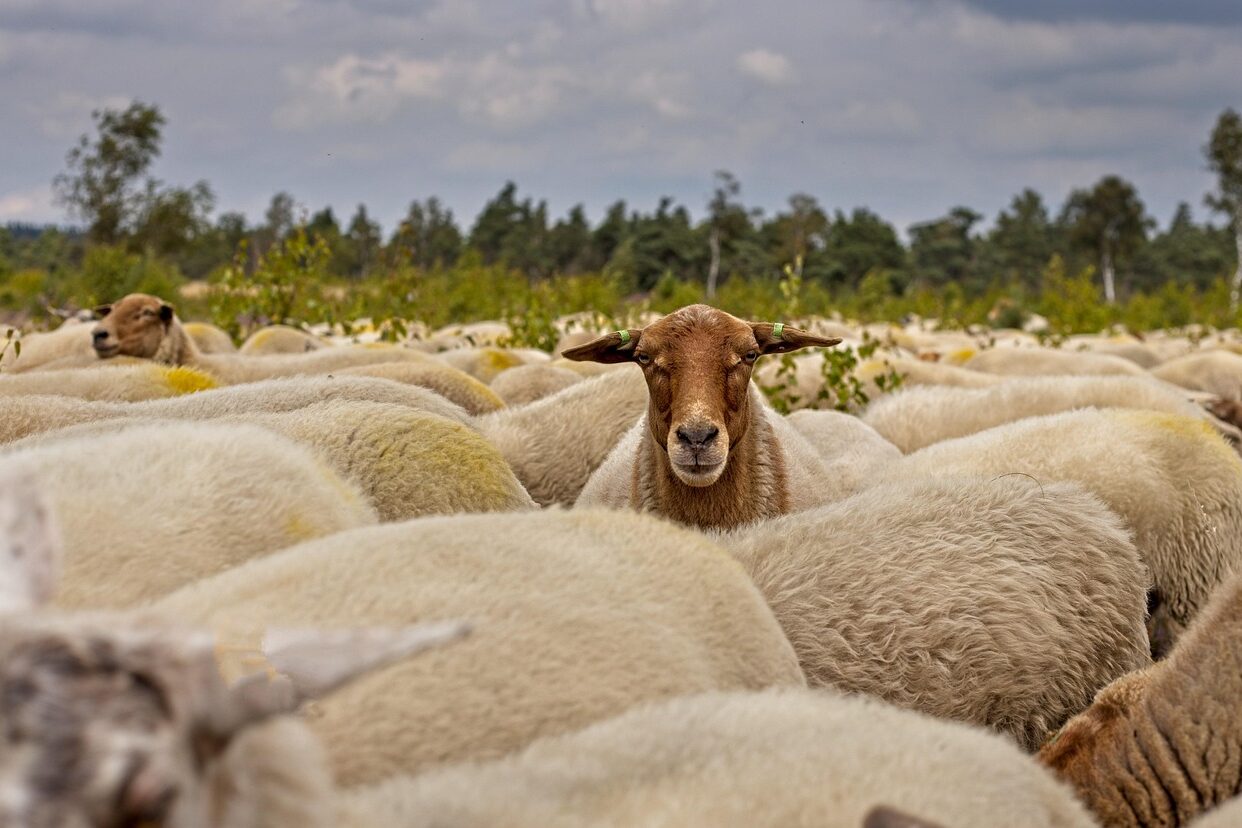
Sheep aren’t just woolly lawn ornaments—they’re surprisingly effective grass trimmers. On average, a sheep eats 2–4 pounds of grass a day. An acre of grass can produce 20,000–40,000 pounds annually, so you’ll need a small flock to keep up. For a quarter-acre lawn, two to three sheep can keep things under control. Half an acre? Four to six. A full acre? Six to ten sheep grazing at their own steady pace.
2. Shepherd vs. Lawn Mowers: Which One Wins?
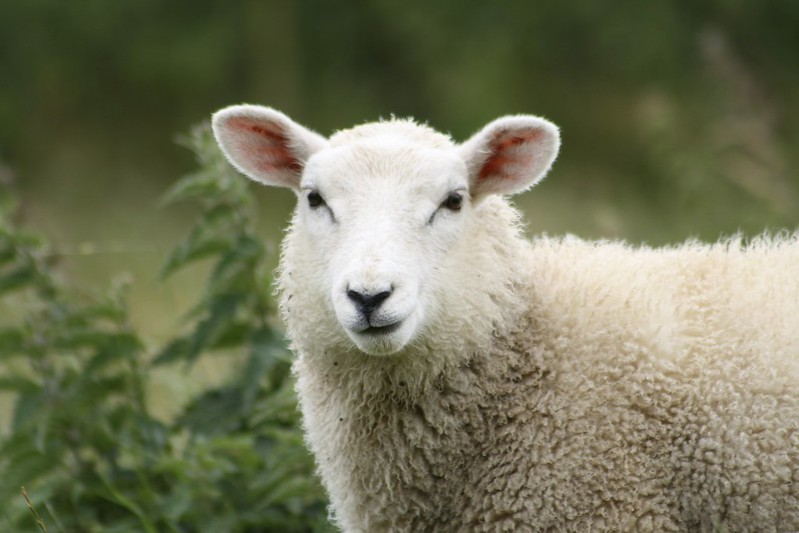
Gas mowers cut fast, but they also pollute the air, burn fuel, and create a racket. Sheep, on the other hand, fertilize as they go, cutting quietly and cleanly without fumes. Still, sheep aren’t maintenance-free. They need water, food, shelter, and predator protection. And while a mower leaves sharp lines in minutes, sheep take their time. The question isn’t speed—it’s whether you’d rather pay for gas or invest in grass-powered lawn care.
3. What Are the Best Sheep Breeds for Lawn Maintenance?
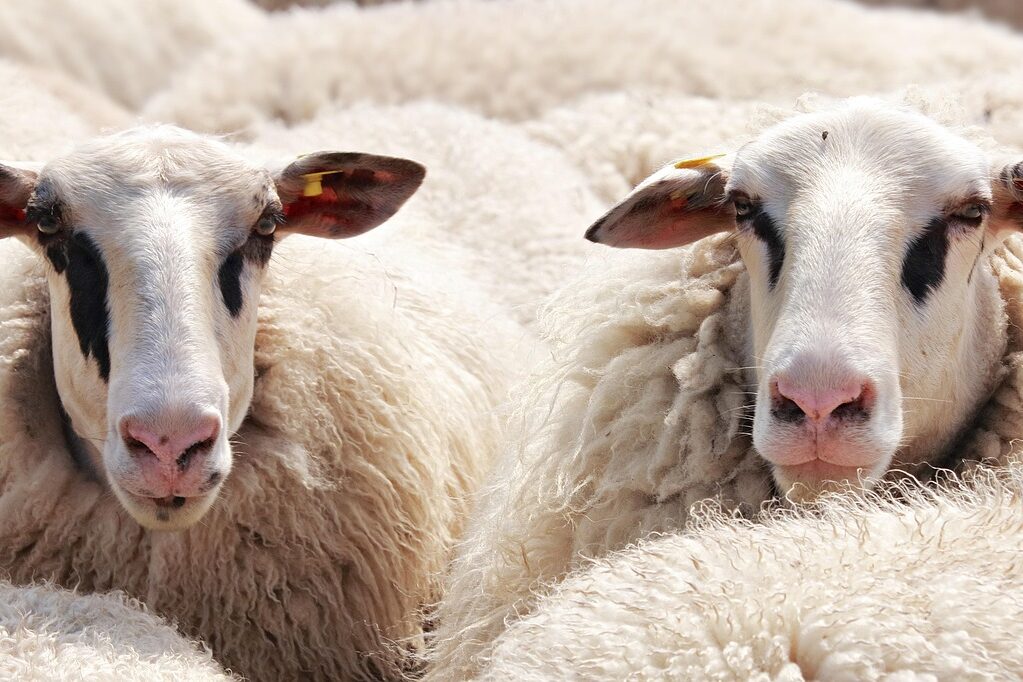
Not all sheep are created equal when it comes to grazing. Hair sheep like Katahdins or Dorpers are ideal—they shed naturally, so no shearing required, and they’re hardy in most climates. For smaller lawns, Southdown Babydoll sheep are pint-sized grazers with sweet temperaments, perfect for suburban yards. Shetlands are another tough, small breed, with the bonus of fine wool. The best breed depends on your yard—and whether you want wool or worry-free maintenance.
4. Will Sheep Eat More Than Just Grass?
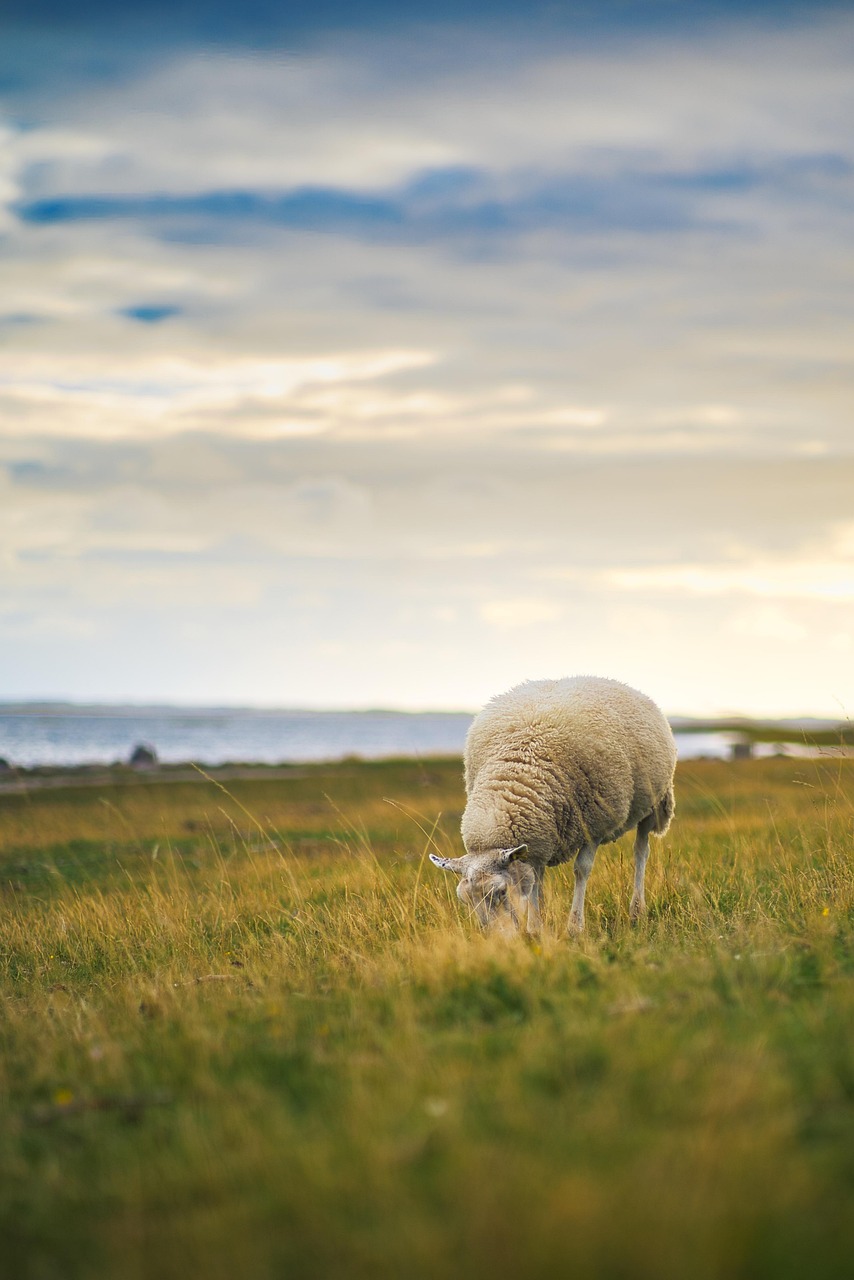
Yes. Sheep will happily munch on your roses, vegetables, and landscaping if you let them. They’re not picky eaters, so without boundaries, they’ll treat your yard like an all-you-can-eat buffet. Electric fencing is the best way to keep them where you want them. Some owners even plant “sacrificial patches” of clover or dandelions to distract sheep from the good stuff. Without planning, your lawn may be perfect—but your garden won’t survive.
5. Can Sheep Handle Uneven or Hilly Terrain?
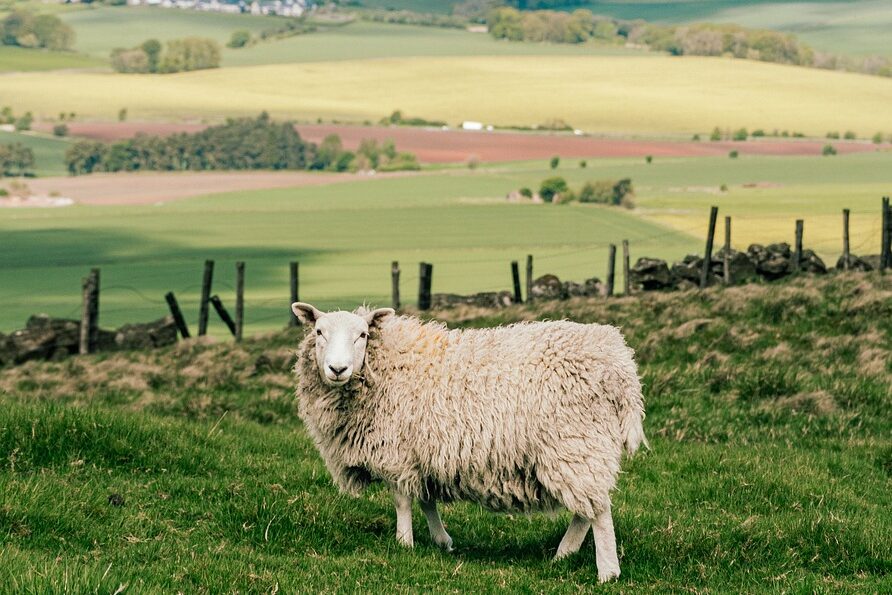
If your yard has hills, you’ve got a built-in job for sheep. Their nimble hooves are perfect for slopes where a mower might tip or stall. They’ll happily graze uneven ground where machines struggle. But rocky or swampy soil is another story—it can cause hoof issues like rot. In the right conditions, sheep are natural hillside gardeners. In the wrong ones, they’re four-legged lawnmowers that might limp instead of trim.
6. Do sheep require a lot of maintenance?
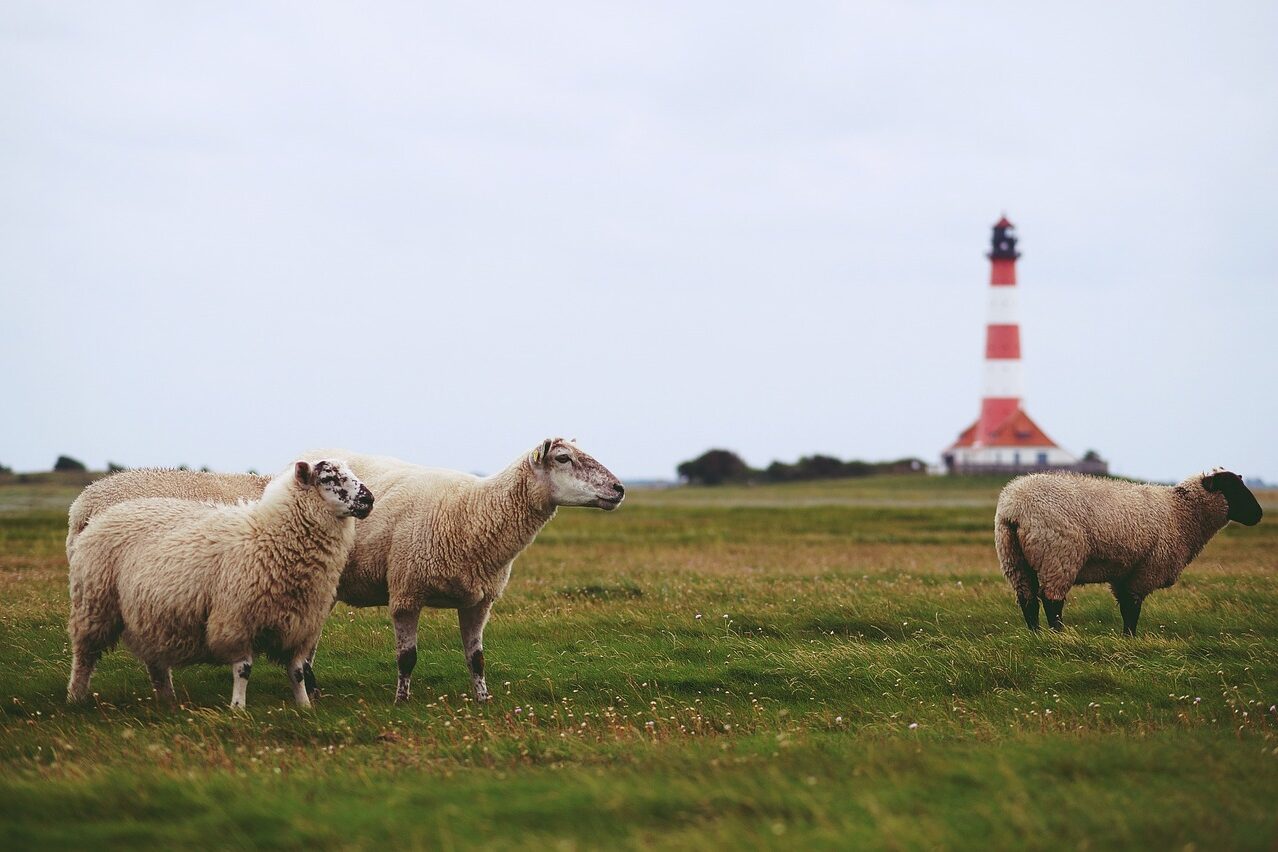
Sheep aren’t as hands-off as a mower in the shed. They need clean water, supplemental feed in winter, hoof trims, parasite checks, and sometimes shearing (unless you choose hair breeds). They’re tough, but like all animals, they get sick. That means occasional vet bills, vaccines, and daily care. Compared to cattle or horses, sheep are “low maintenance.” Compared to pulling a mower cord on Saturday? They’re more like a lifestyle choice.
7. Is sheep a cost-effective alternative?
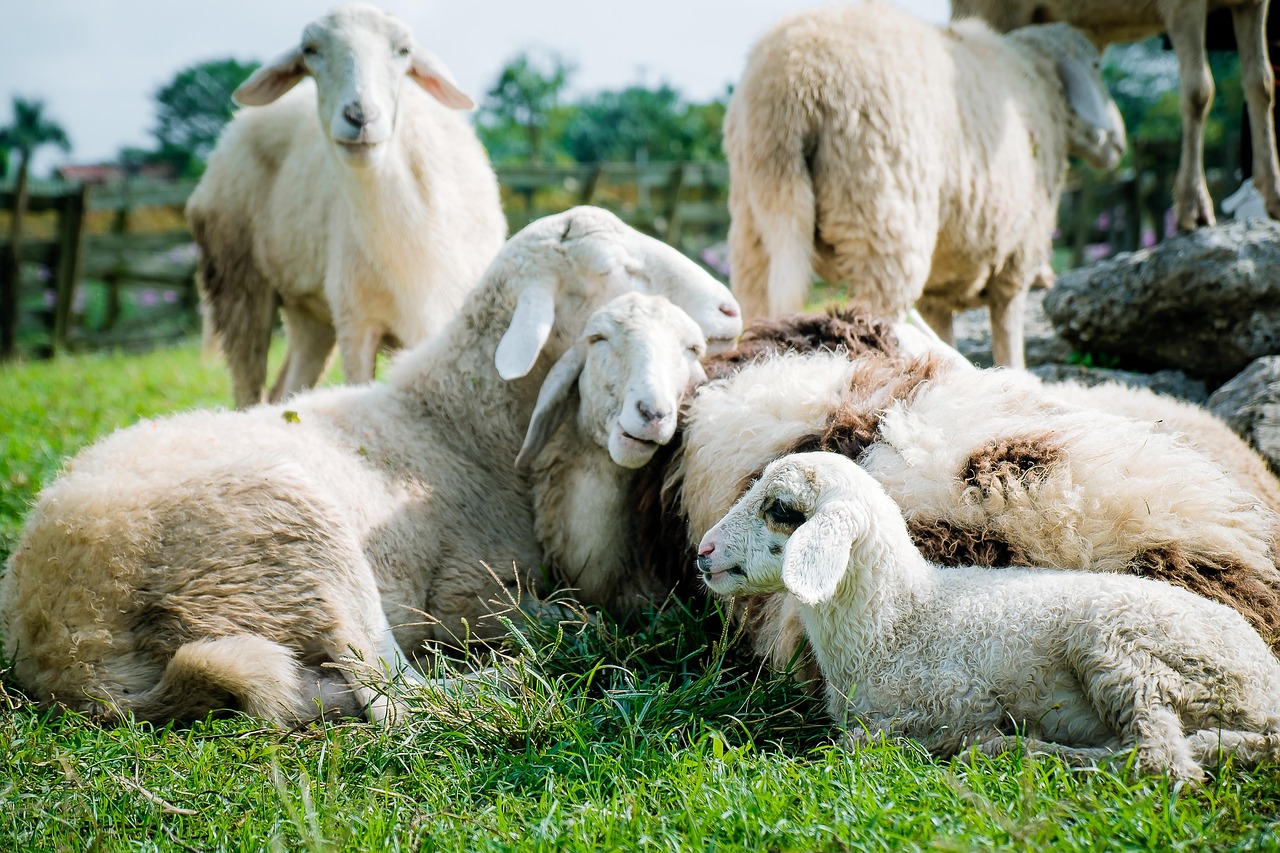
Sheep can save you money—eventually. A decent mower costs $200–$1,000, plus fuel, oil, and repairs. Sheep cost about $50–$150 each, plus hay in winter, vet care, and fencing. But they fertilize for free, eliminate fuel bills, and can even provide wool or lambs if you want extras. If you’ve got space, time, and commitment, the economics work out. If you want instant gratification, stick with gas and steel. Sheep pay off slowly, not immediately.
8. Is a sheep-law right for you?

A sheep-powered lawn isn’t just lawn care—it’s a lifestyle. You’ll need room, secure fencing, and time to care for them. Big yards or homesteads? Sheep can cut fuel bills and boost sustainability. Tiny suburban plots or homeowners’ associations? Not so much. Before you bring home a flock, check local ordinances and ask yourself: am I ready for livestock, or do I just want shorter grass? Sheep aren’t gadgets—they’re living, bleating lawnmowers.
9. The Environmental Impact of Sheep vs. Traditional Lawn Care
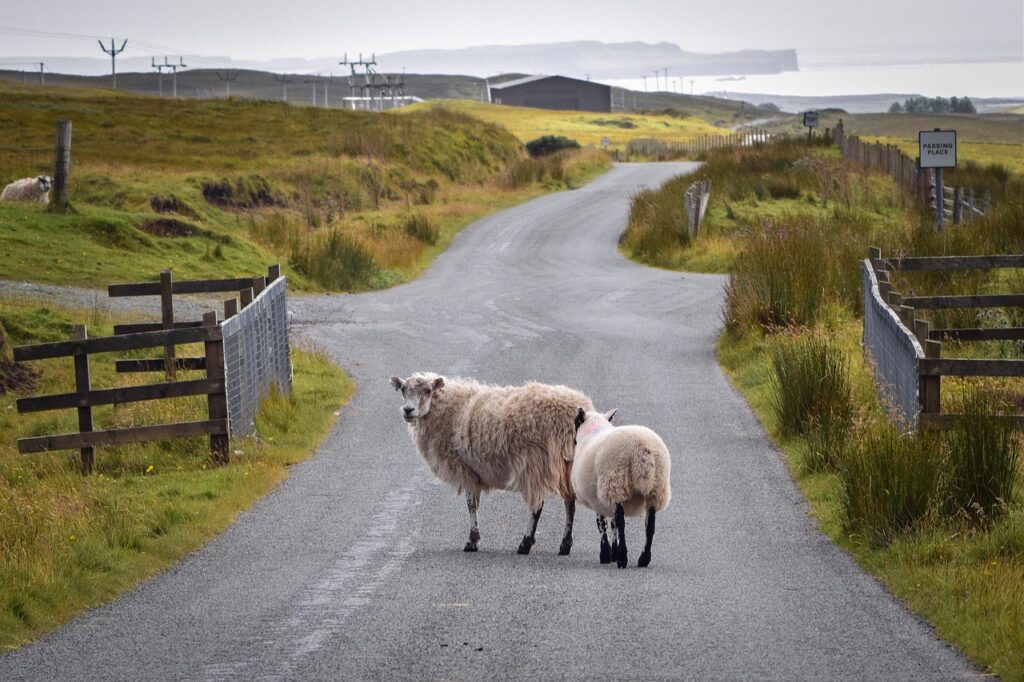
One hour with a gas mower can pollute as much as a car trip of 100 miles. Sheep? Zero emissions, zero gas, and they fertilize naturally. Their grazing prevents overgrowth, encourages biodiversity, and nourishes the soil. Traditional mowing chops grass into submission; sheep recycle it into nutrients. Add in peace and quiet—no Sunday morning roar of engines—and the eco-benefits are clear. Sheep turn your lawn into a closed-loop system, not a chore.
10. How to Build a Fencing System for Your Sheep Lawn Care
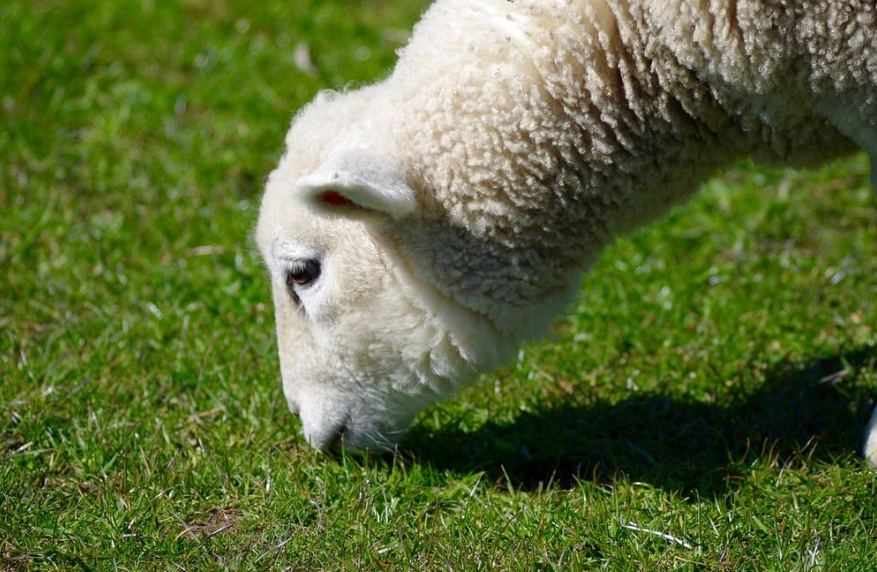
Good fences make good neighbors—and keep sheep from eating those neighbors’ shrubs. Electric fencing is the gold standard: simple, effective, and a shock deterrent. A 4–5 foot height usually does the job. In predator-heavy areas, woven wire adds extra protection. Some owners use mobile pens, rotating sheep from one patch to another so grass regrows evenly. A mower doesn’t escape—but sheep will, unless you keep them fenced in tight.
11. The Cost of Maintaining Sheep for Lawn Care
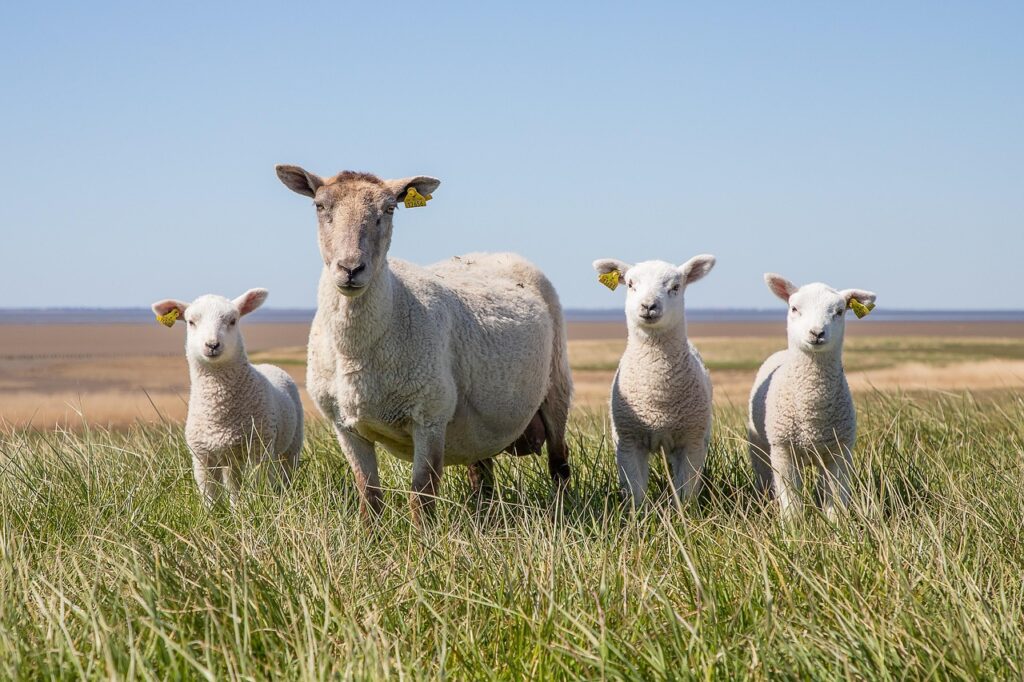
Buying sheep is cheap. Keeping them? Not always. Beyond the upfront purchase, you’ll need hay for winter, shelters for storms, routine vet care, and hoof trimming. Add fencing costs, and upkeep can climb. It’s not outrageous—many homesteaders find it cheaper than gas mowers long term—but it’s not “free lawn care.” Think of it like swapping mower maintenance for flock management. Both cost something—you just have to decide which “fuel” you’d rather pay for.
12. The Aesthetic Appeal of Sheep-Trimmed Lawns
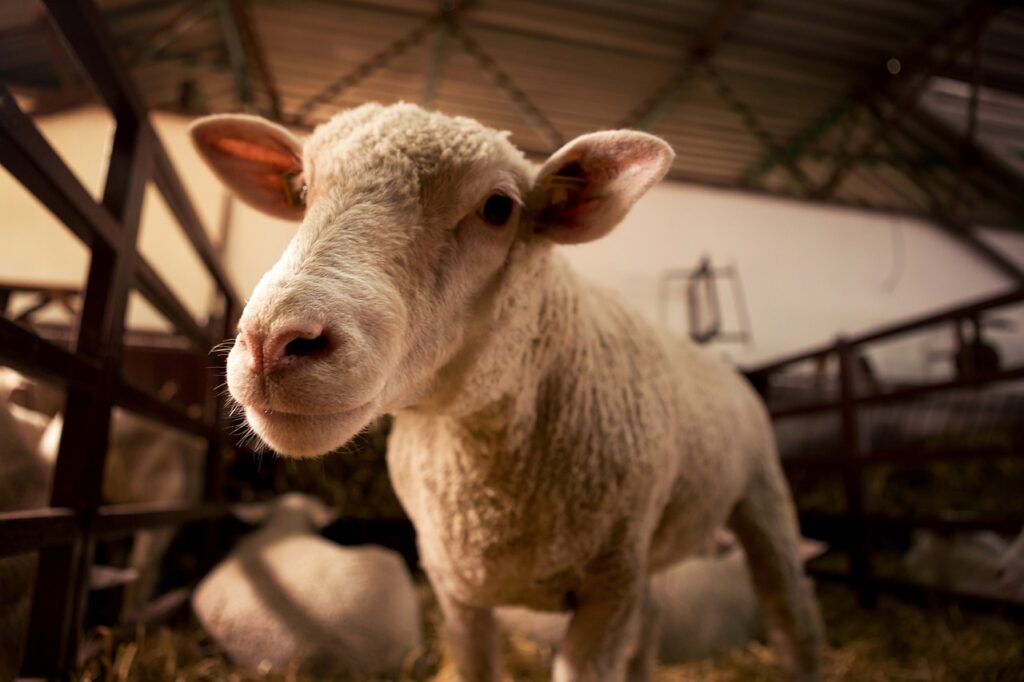
Sheep won’t give you sharp mower stripes. Instead, they create a softer, more natural look—like a meadow rather than a golf course. Some homeowners love that rustic vibe. Others appreciate the charm of sheep grazing outside their window, adding peaceful motion to the yard. Plus, they’re conversation starters. And as they graze, they create habitats for insects and birds, boosting biodiversity. A mower trims grass. Sheep transform the whole landscape into something alive.
13. Are Sheep a Good Option for All Lawn Types?
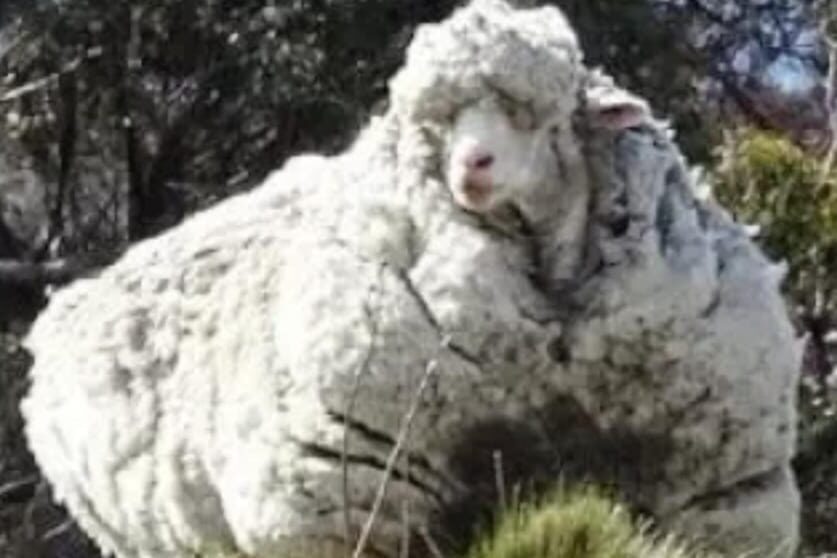
Sheep thrive on open, grassy lawns. If your yard is packed with ornamental plants or a vegetable garden, expect damage unless you fence carefully. Wet or marshy lawns can harm their hooves, while severe winters mean more work for you. Sheep are best in temperate regions with steady grass growth. Before choosing sheep, evaluate your yard honestly. If it’s more garden than pasture, sheep will bring headaches. If it’s grassland, they’re ideal.
14. Could Sheep Save You Money on Taxes?

In many regions, keeping livestock can qualify land for agricultural tax benefits. Even a small flock of sheep may let you claim exemptions or reduced property assessments, depending on local laws. This isn’t guaranteed—rules vary widely—but for larger yards or rural properties, sheep can literally pay you back at tax time. Beyond free lawn care and natural fertilizer, they may also lighten your annual bill, adding one more reason to trade gas for grass.
15. Sheep Are Lawn Care With Personality

A mower doesn’t greet you, make your kids laugh, or follow you around. Sheep do. They bring charm, character, and companionship to lawn care in ways no machine can. Their bleats, quirks, and calm presence make them family mascots as much as grass managers. They won’t give you instant stripes, but they’ll give you memories, character, and a greener footprint. For many, that personality is worth far more than perfectly straight lines.
Replacing your mower with sheep isn’t for everyone—but for the right yard, it’s a sustainable, eco-friendly, and surprisingly charming choice. From tax perks to natural fertilizer to the soothing sight of grazing in your yard, sheep bring more than lawn care. They bring connection. So the next time you pull the mower cord, ask yourself: wouldn’t two sheep and a little fencing do the job better—and with a lot more personality?


